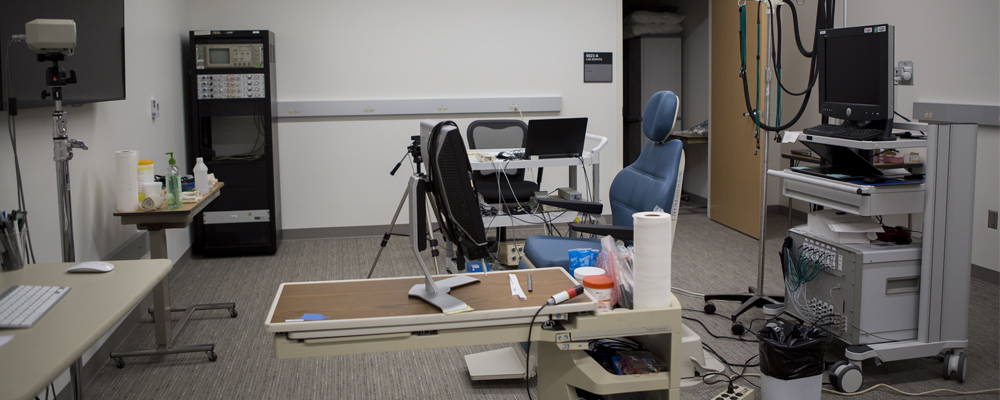
The Ph.D. program is designed to provide graduate students, either with or without clinical backgrounds in speech, language or hearing sciences and/or disorders with advanced mentored study in specialized areas of communication sciences and/or communication disorders. The program emphasizes the refinement of critical thinking skills to scientifically respond to the many unanswered questions within the field of Communication Sciences and Disorders. To this end, students will experience a stimulating intellectual environment where the ability to conduct research is considered an essential skill.
Program Components include doctoral level seminars both within and outside the area of study include courses on research tools such as: instrumentation and methods of measurement, designing and conducting clinical trials, writing grants for federal research support, strategies for developing a research career, statistical methods, experimental research design, quantitative and qualitative methods, and research ethics. In addition, doctoral level seminars are in content areas such as: experimental phonetics, neurolinguistics, integration of upper airway systems and other topics of interest.
The faculty and doctoral students interact weekly during the Brown Bag seminar providing an opportunity for informal presentations, discussion of new research ideas, preliminary data and collaboration.
Research seminars are held several times each semester with invited speakers from within and outside JMU. Ability to do clinical practicum in JMU-RMH joint clinics.
Academic training includes supervised research experiences, teaching and dissertation research.
Highlights of the Program
- Training in exciting new research areas relevant to translational and clinical research into normal and disordered communication processes is available:
- Mechanisms of recovery and repair in hearing disorders
- Enhancing neuroplasticity for rehabilitation of swallowing and voice disorders
- Infant speech perception and speech development
- Hearing aid enhancement
- Factors involved in recovery from developmental stuttering
- Adolescent language
- Traumatic brain injury
- Vestibular rehabilitation
- Clinical trial designs serving as the foundation for evidence-based practice in speech-language pathology and audiology
- Extensive training in experimental design and statistical methods for translational and clinical research into normal and/or disordered communication processes
- An environment that fosters collaborative interdisciplinary learning within and outside the University
- Unique mentored teaching experience to prepare well rounded doctoral students for academic careers
- Training in state of the art instrumentation and grant writing

